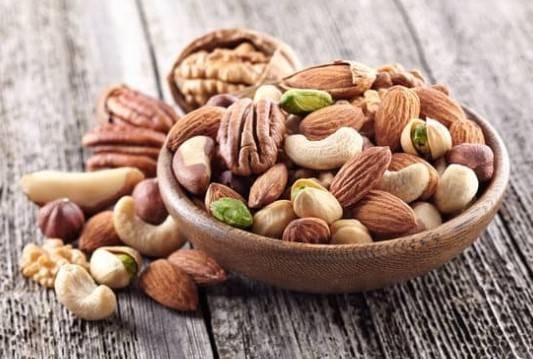
Nuts are nutritious dietary sources of nutrients such as protein, unsaturated fats, vitamin E (also called Tocopherol), dietary fibre, polyphenol antioxidants, as well as minerals like manganese, copper, and selenium.
Currently, numerous studies have shown habitual consumption of nuts confers several health benefits, such as lowering the “bad” LDL cholesterol and triglycerides, promoting anti-inflammatory activities, assisting in weight management, and reducing the risk of cardiovascular diseases. Nuts are high in calories (in average 600kcal per 100g, equivalent to that of 3 bowls of rice) due to their high unsaturated fat contents (about 70-80% of total fat content); however, given the presence of dietary fibre (7g per 100g) which promotes satiety, they can be beneficial in weight management when eaten between meals as snacks in moderation.
A 3-month study has found that overweight people with regular intake of almonds have lost nearly 3 times as much weight than those who do not eat almonds.The American Heart Association suggests an intake of at least 4 servings of nuts weekly, with each serving being 1.5 ounce (42g) or approximately a handful.














